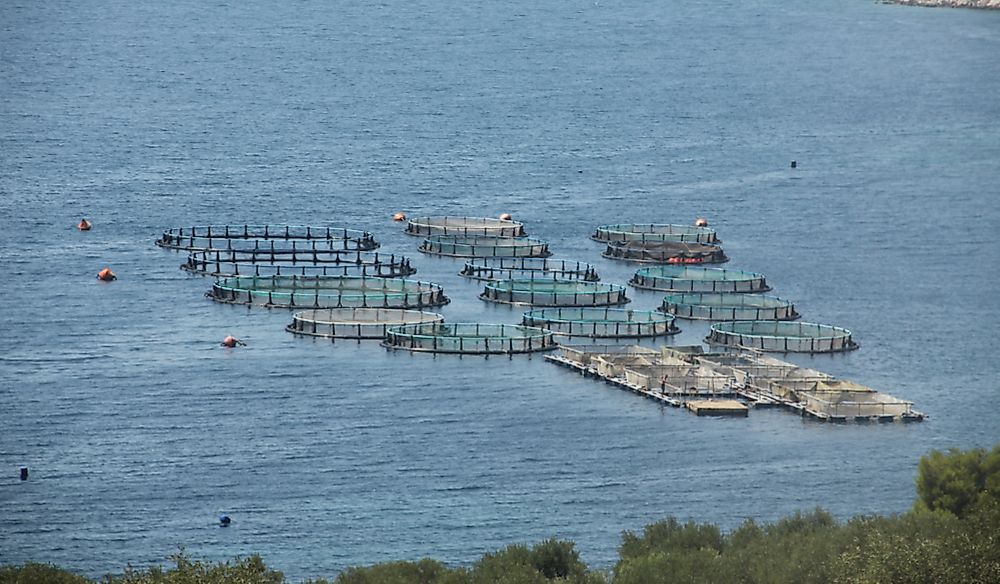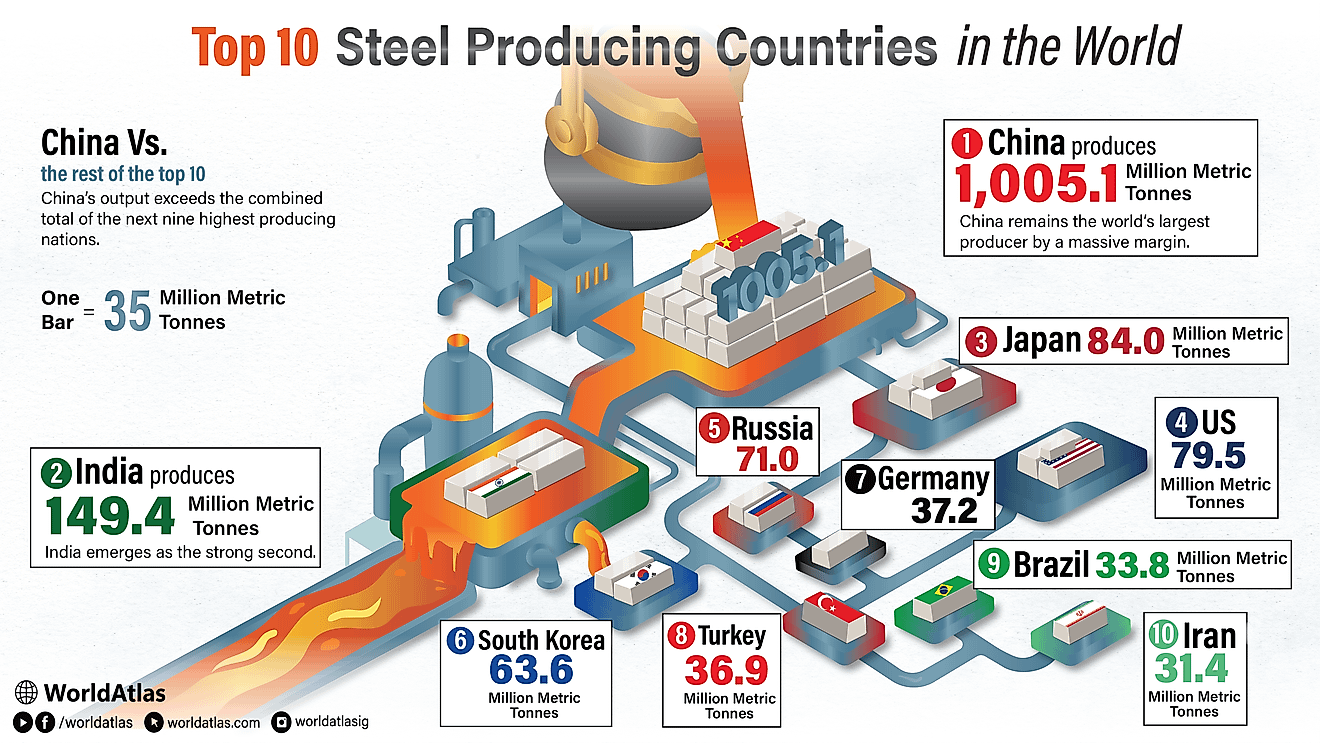What Are The Major Natural Resources Of Albania?

The Republic of Albania is a European nation in the southeastern section of the continent where it spans an area of roughly 11,100 square miles. According to experts from the World Bank, Albania is considered an upper-middle-income nation. In the past, Albania was one of the poorest nations in Europe, but due to the ambitious economic reforms implemented by the government, its economy has grown substantially. The country had a nominal GDP of $15.3 billion in 2018 and GDP based on Purchasing Power Parity of $38.1 billion. Some of the economic drivers in the country include agriculture, industry, and service sectors. One of the main reforms implemented by the Albanian government is the proper utilization of natural resources. The most important natural resources in Albania include the arable land, petroleum, natural gas, coal, and copper among others.
Arable Land
One of Albania's most important natural resources is arable land. According to research by Professor Andrea Shundi, 24% of Albania's total land area is used for agricultural purposes. The agricultural sector is one of the most critical sectors in Albania as it contributes close to 23% of the gross domestic product. In 1912, the Albanian government set up the Ministry of Agriculture to manage the country's agricultural resources particularly the arable land. The ministry had gone through many changes with the most recent being in 2017 when it became the Ministry of Agriculture and Rural Development. Some of the main crops grown in Albania include grapes, figs, cucumbers, and plums.
Grapes
Grapes are some of Albania's most important natural resources since they are vital to the country's wine industry. There are several types of grapes indigenous to Albania such as Manakuq, Pulës, Mjaltëz, and Stambolleshë. Some of the central regions where grapes are grown in Albania include the central hilly region and the coastal plains. Albania's winemaking industry is one of the most ancient in the country as it dates back to the ice age. Historical evidence indicates that during the communist era, close to 77 square miles of land were used to grow grapes.
Fish
One of the most important natural resources in Albania is fish. Due to its location, Albania has a wide variety of freshwater and salt water fish. In Albania, marine fishing occurs in the Ionian Sea as well as the Adriatic Sea. Most of the freshwater fishing in Albania is carried out in the country's lakes with the most prominent lakes being Lake Prespa, Lake Shkodër, and Lake Butrint. Apart from the lakes, freshwater fishing in Albania also is carried out in some lagoons such as the Patos Lagoon, Karavasta Lagoon, and Narta Lagoon. Despite a large number of fish resources in the country, Albania's fishing industry is relatively underdeveloped. Apart from traditional fishing the Albanian people also practice extensive fish farming. Fish farming has been one of the main industries of Albania since the 1950s. The type of fish farmed in Albania depends mainly on the region, and the most common fish kept in the southeastern section of the country is trout. They are also commonly kept in the northern and southwestern sections of the country. The most common species of marine fish cultivated in Albania include European bass, silver carp, and gilt-head bream.
Water
Water is an essential natural resource in Albania as it is vital for the generation of the country's electricity. Apart from being used for electricity generation, water in Albania is also used for numerous other purposes such as agricultural and industrial use. According to government estimates, the most important power source in Albania is hydroelectricity, and the nation relies on hydropower almost 100% from domestic generation. Some of Albania's most important hydroelectric plants are situated along the River Drin such as Skavica, Fierza, Vau i Dejës, and Koman.
Oil
Geological research indicates that Albania has vast deposits of oil. According to the Albanian government, the oil reserves in Albania are estimated to be 220 million barrels. Data from the Institute of Energy for South-Eastern Europe indicates that Albania produces more oil than any other nation in the Western Balkan region. Albania has several massive oil fields with the most prominent being the Patos-Marinza field which is larger than any oil field on continental Europe. The reserves of the Patos-Marinza oil field are estimated to be 2 billion barrels. The Patos-Marinza field produces roughly 12.556 barrels of oil each day.
Natural Gas
Natural gas is one of Albania's most important natural resources. Albania has several major gas reserves such as Durrës Block, Kalm, and Ballaj Kryevidh. The Durrës Block is the most important natural gas field in Albania since it is larger than any other offshore gas field in the country. The Island Oil and Gas Company discovered the Durrës Block in 2003.
Minerals
Albania has some of the largest mineral deposits on the European continent. Some of the minerals that can be found within Albania's borders include limestone, gypsum, iron, and coal. Chromium is one of the most important minerals in Albania as the country is considered one of the leading producers of the minerals internationally. Some of Albania's major mines include the Bulqizë mine, the Batra mine, and the Thekna mine famous for its vast deposits of chromium. According to the Albanian government, the chromium reserves of the Thekna mine are estimated to be 0.652 million tons.
Gold
Gold has been one of Albania's most important natural resources since the medieval era. Modern gold mining methods were introduced into the country during the 20th century. One of the central regions in Albania where gold is mined is the Puke region where the Perlat Copper-Gold-Silver-Cobalt mine is situated. The mine is owned by the Arian Resources Company which is one of the leading mining companies in Albania. In 2015, an analysis was carried out in different regions to search for gold in the country. According to the analysis, Albania's gold reserves were estimated to be 14 million tons.
The Albanian Economy
Notable organizations like the IMF and the World Bank expect the Albanian economy to grow significantly. Despite the projected growth, the Albanian economy faces some challenges such as unemployment and poor infrastructure.











